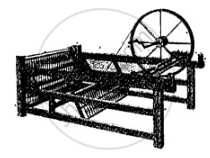Advertisements
Advertisements
प्रश्न
Answer the following question briefly:
The French Revolution of 1789 was a milestone and a major turning point in human history. In this context discuss the following causes:
An unjust, unequal social order of the Ancient Regime
उत्तर
An unequal, unjust social order: French society was essentially feudal in nature.
It was divided into three main classes, called Estates:
- The First Estate consisted of the clergy (church officials).
- The Second Estate consisted of the nobles and their families.
- The Third Estate was composed of 95 percent of the population. It included the peasants, artisans, workers and the middle class (consisting of merchants, manufacturers, and professionals such as lawyers, doctors, teachers, etc.)
The First and Second Estates enjoyed numerous privileges. They owned practically all the land in France but did not have to pay any taxes. They were very wealthy and led comfortable and luxurious lives.
The Third Estate, on the other hand, shouldered the entire burden of taxation but was not entitled to any of the privileges enjoyed by the clergy and the nobles. Taxes were imposed on everything, including basic necessities like salt. Life was very hard, especially for the poor peasants who had to pay additional taxes to their feudal lords.
संबंधित प्रश्न
Explain the term ‘domestic system.
With reference to the following point explain the social effects of the Industrial Revolution:
Harsh living conditions of workers
With reference to the Industrial Revolution explain the following:
The growth of trade unions
This is a picture of a machine invented during the Industrial Revolution
Who invented it?
Fill in the blank
The French Revolution began in _______________.
State whether the following statement is true or false:
The French Revolution began with the storming of Bastille in 1789.
Sketch the role of Lafayette in the French Revolution.
How did the Reign of Terror end?
Marat played a major role in ______.
The first consul was ______.
